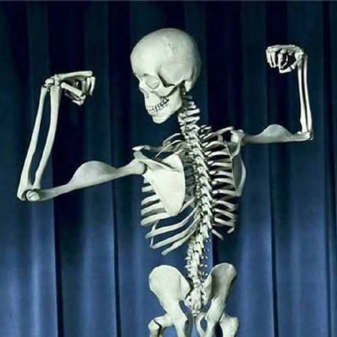
A new study by a Florida State University researcher reveals that a new dietary supplement is superior to calcium and vitamin D when it comes to bone health.
Over 12 months, Bahram H. Arjmandi, Margaret A. Sitton Professor in the Department of Nutrition, Food and Exercise Sciences and Director of the Center for Advancing Exercise and Nutrition Research on Aging (CAENRA) at Florida State, studied the impact of the dietary supplement KoACT® versus calcium and vitamin D on bone loss. KoACT is a calcium-collagen chelate, a compound containing calcium and collagen that are bound together.
Calcium and vitamin D are generally thought of as the first line of defense when it comes to bone health, but Arjmandi’s research found that the calcium-collagen chelate was more effective in slowing bone loss.
“This is crucial information for the health of women,” Arjmandi said. “Women in early menopause experience rapid bone loss.”
Arjmandi’s study is published in the most recent issue of Journal of Medicinal Food.

A group of 39 women were randomly divided into two groups, with the control group taking a capsule that was a mix of calcium and vitamin D. The other group took the calcium-collagen chelate.
The women taking the calcium-collagen chelate saw substantially less bone loss than the control group over a year’s time. The group taking the calcium-collagen chelate, saw a loss of 1.23 percent in bone mineral density, while the control group saw a 3.75 percent loss.
Arjmandi acknowledged he was “pleasantly surprised” by the outcomes and hopes that the supplement will be used in the future as a way to prevent bone density loss.
“We take our bones for granted,” Arjmandi said. “If we do not prevent the loss of bone, our bones will be looking for an excuse to break.”
In the United States, more than 44 million people have or are at risk for osteoporosis, a chronic and potentially debilitating condition. Although there are some drugs available to treat it, most medical professionals have turned to nutrition and exercise to treat the condition.
Arjmandi’s study was funded by AIDP, Inc.




